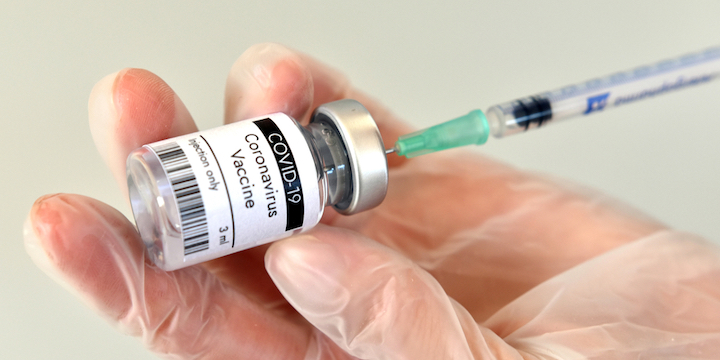Starting tomorrow, adolescents aged 12 to 17 will be able to be vaccinated against Covid-19.
What permissions are needed?
Adolescents must necessarily be accompanied by at least one parent during the injection, which can only be done in a vaccination center and only with the vaccine from Pfizer / BioNTech.
Finally, both parents will have to give their consent so that the child can be vaccinated, and the child must also agree. “The public health code insists on the obligation to also take into account the consent of the minor”, recalls the National Ethics Committee (CCNE).
Yet nothing is planned on the authorization form to be signed by both parents, to obtain the consent of the adolescents.
A decision taken too quickly?
“Vaccination has already started in some centers and we have seen that it was extremely simple”, and “very well accepted by adolescents”, explains Jérome Salomon, the Director General of Health. “They are the ones who have suffered the most from this epidemic” and “many teens are ambassadors for vaccination”.
But this opening of vaccination to the youngest divides: the CCNE regrets that the decisions concerning the vaccination of adolescents “were taken so quickly”, in a context of the decline of the epidemic.
What are the risks of side effects?
“Is there an absolute urgency to start vaccination now, when several indicators are green and the start of the school year in September could mark the start of the campaign?”, wonders the committee, which considers that the individual benefit of vaccination is “limited for physical health” young people.
Serious forms of Covid-19 infection are indeed very rare in people under the age of 18. The committee also asks “specific pharmacovigilance monitoring” side effects, in view of the small decline in “safety of these new vaccines in adolescents”.
A vaccination for others ?
Vaccinating adolescents must therefore above all serve to protect the greatest number. Indeed it is “unlikely” that the objective of collective immunity, which requires vaccination of 80% to 85% of the population, “can be achieved by vaccination of adults alone”.
But “Is it ethical to make minors bear the responsibility, in terms of collective benefit, for the refusal of vaccination (or the difficulty of accessing it) of a part of the adult population?”, wonders the CCNE.
A future disappointment?
The committee also raises the question of the risk of “breaking the trust” young people who would be vaccinated for collective immunity. Because “the consequences of the pandemic on the psychological and mental health of children, and especially adolescents, are profound and probably lasting”.
And teens might just be disappointed “If the return to normal life” promised in exchange for vaccination “was compromised by the arrival of new variants” of the coronavirus.
 Cherry tomatoes contaminated with salmonella: 92 sick and 1 dead
Cherry tomatoes contaminated with salmonella: 92 sick and 1 dead  A better coaching method can make a person grow
A better coaching method can make a person grow  What is the method to prevent diabetes in children?
What is the method to prevent diabetes in children?  What are the effective factors in causing stomach ulcers?
What are the effective factors in causing stomach ulcers?  Why do embarrassing memories seem to appear at night?
Why do embarrassing memories seem to appear at night?  The amazing link between SARS-CoV-2 infection and newly started diabetes
The amazing link between SARS-CoV-2 infection and newly started diabetes  WHO says monkey pox is not a global emergency right now
WHO says monkey pox is not a global emergency right now  Single cell RNA sequencing uncovers new mechanisms of heart disease
Single cell RNA sequencing uncovers new mechanisms of heart disease  Hepatitis of unknown origin: 3 new deaths and 228 cases worldwide
Hepatitis of unknown origin: 3 new deaths and 228 cases worldwide 